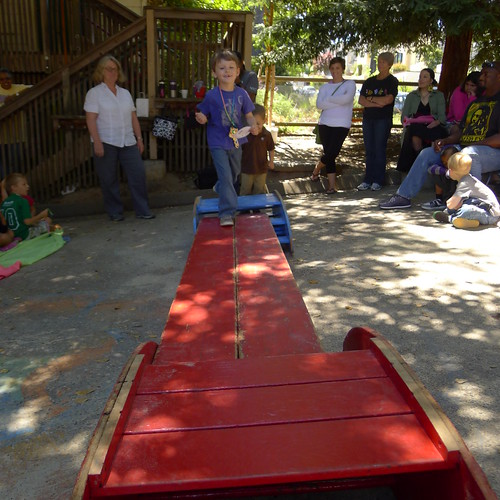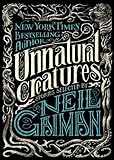Key Day
Robin graduated from preschool today. There’s actually another month of school left to go, but at the Peter Pan preschool the graduation ceremony is held in mid-June—I think because a lot of folks start leaving for summer vacation. It’s called Key Day, and each graduating child is awarded a big wooden key adorned with lots of sparkly bits, to symbolize that they can always come back to visit. After the kids get their keys they run across a “bridge” set up in the playground, which represents them “crossing over into the wider world of learning.” It’s a nice ceremony, with a generous, individualistic feel—it kind of captures the spirit of the co-op.
And as it happens, yesterday, we got a call from the Oakland Unified School District. After learning that we’d been wait-listed for our top-choice school (Urban Montessori Charter School), we kind of started scrambling around for a back-up plan. One of the things we did was to put in the paperwork for late admissions to various public schools in the city, knowing that Robin would only be offered a place in ones that happened to be under-enrolled. Since competition is fierce for spots in the district’s top-performing schools, I kind of figured that this whole process was a long shot at best. For whatever reason, though, it seems that Kaiser Elementary had a space open, and they’ve offered it to Robin.
A little OUSD inside baseball: There are three Oakland public schools that have test scores rivaling what you see at private schools. Those three are Hillcrest, Montclair, and Thornhill—not coincidentally located in the most prosperous sections of Oakland, up in the hills—and we did not even bother applying to any of these, as neighborhood kids get preference and those schools are considered so desirable that even living in the right zip code isn’t a guarantee of admission. We don’t live in the right zip code, needless to say, and anyway I’m pretty sure that there’s a wonky feedback loop going on involving: 1) the kind of parents who care about test scores more than anything else; 2) the kind of kids who have private tutors and get good scores on standardized tests; and 3) the kind of test scores that kids who go to Hillcrest, Montclair, or Thornhill tend to get. In other words, I am pretty darn sure that the quality of the schools has only a loose relationship to the strength of the test scores.
Be that as it may, there’s also a satellite constellation of schools located in neighboring areas—collectively known as the “hills schools”—that get decent test scores but aren’t quite so insanely difficult to get into, and as a result attract a more diverse set of kids. The hills schools include those already mentioned as well as Chabot, Joaquin Miller, and Kaiser. I did not expect to be offered a place at any of them, but we applied to Chabot and Kaiser anyway, because they honestly seemed like they might be good fits for Robin. What I want from a school is, basically, an extension of Peter Pan—a school that recognizes the value of creativity, freedom, and play. I want a school that Robin will love in the same way that he loves going to Peter Pan. I am convinced that kids have an innate drive to learn and that they do best when given the freedom to pursue their own interests along with the materials, support, and structured challenges they need to progress. I think worksheets are the mind-killer and that if school is boring, that means it’s broken. (School can be hard without being boring.)
The bottom line is—I’m pretty skeptical of America’s public school system in general and Oakland’s in particular, but I’ve heard good things about Kaiser and I’m willing to give it a chance. It’s kind of a miracle that we were offered a spot at all. It’s a fair distance from our house so transportation will be an issue, but there’s a number of former Peter Pan families that have kids there now, so we might be able to get a carpool going.
I think if Urban Montessori finds a space for Robin, we’ll probably still take it. But Kaiser is our default plan now.

























